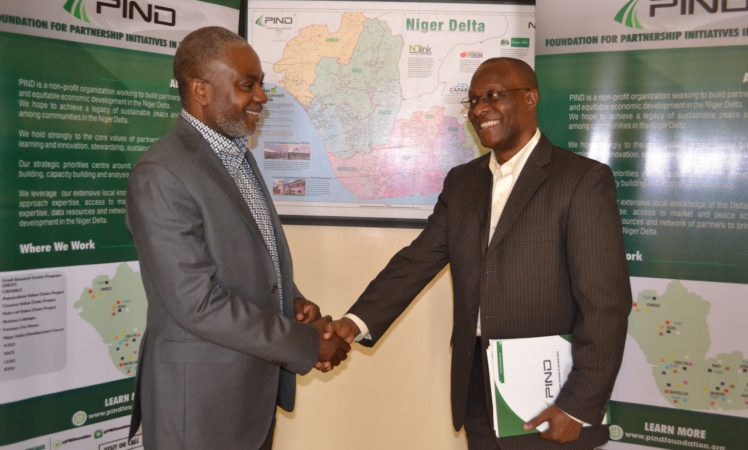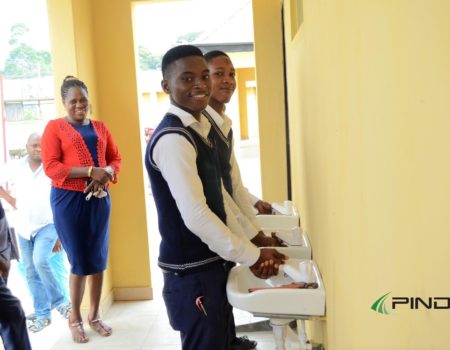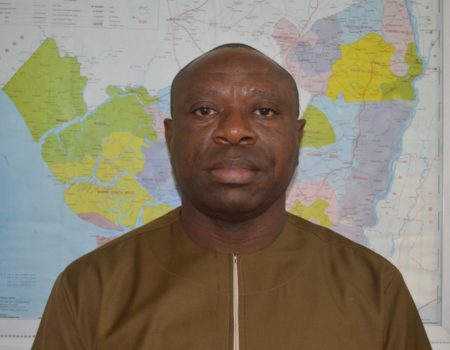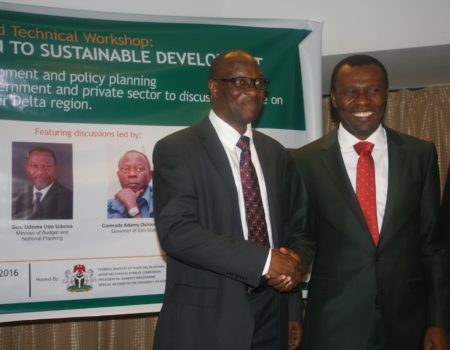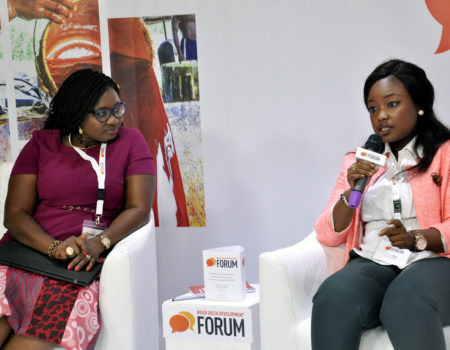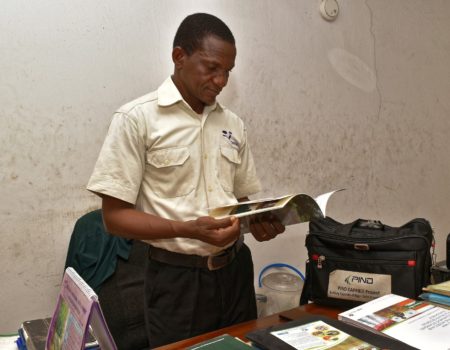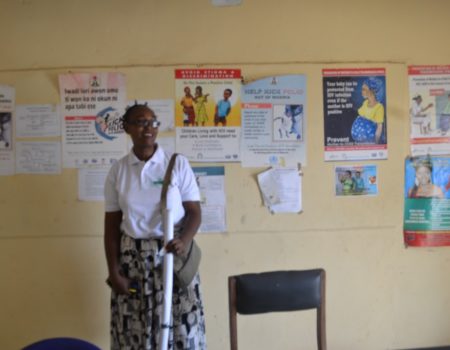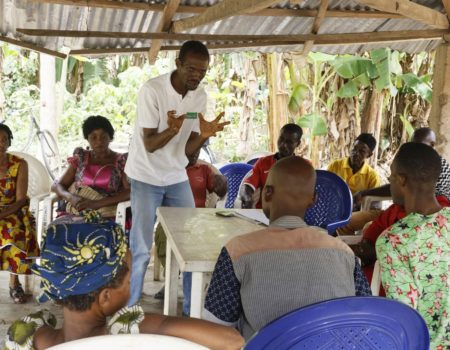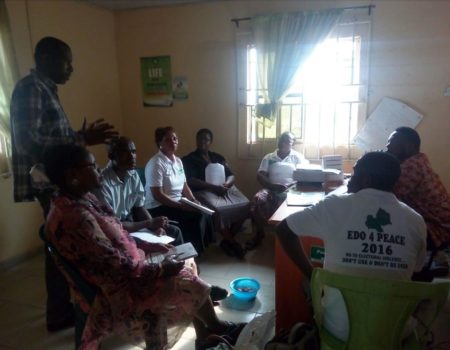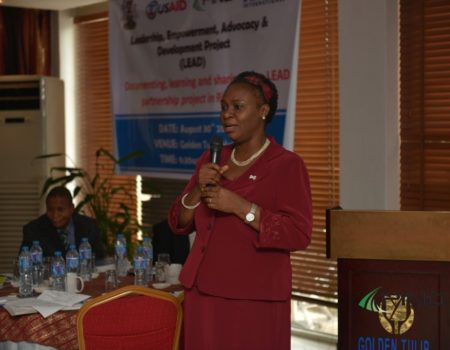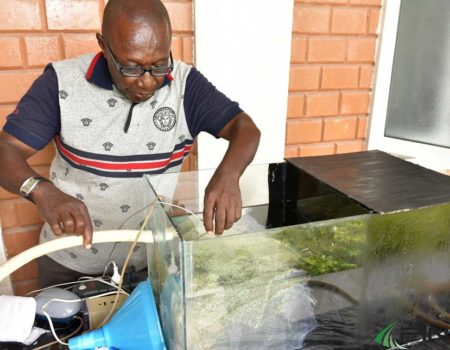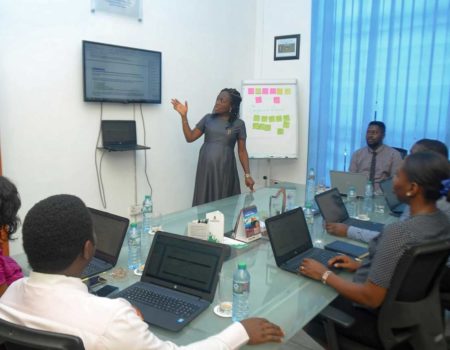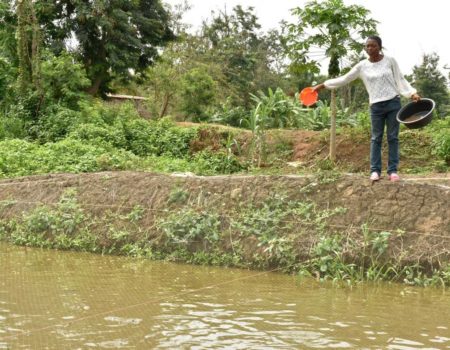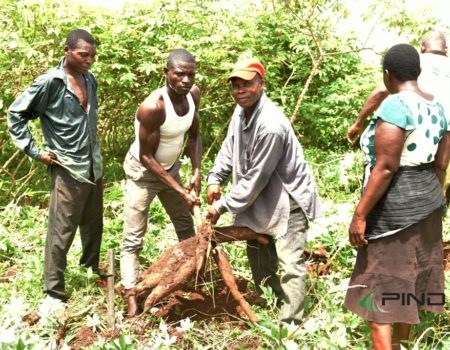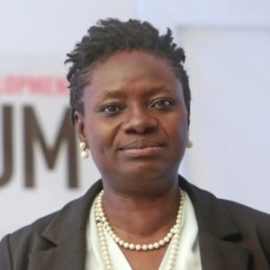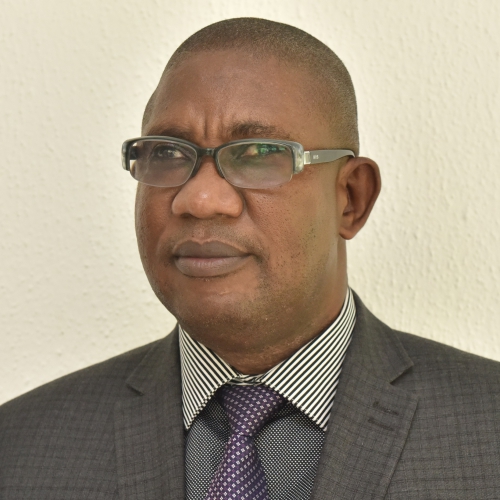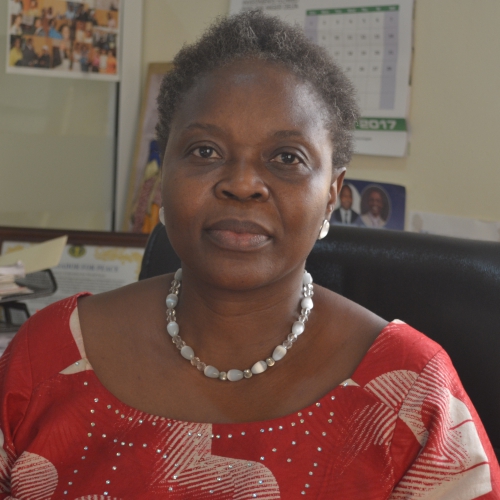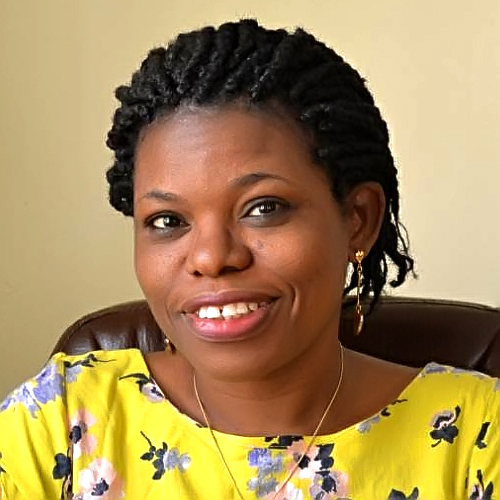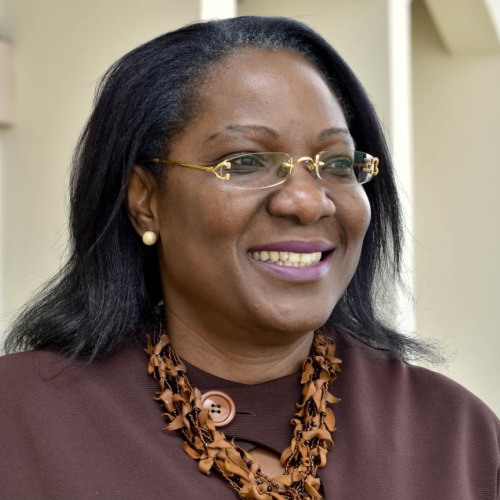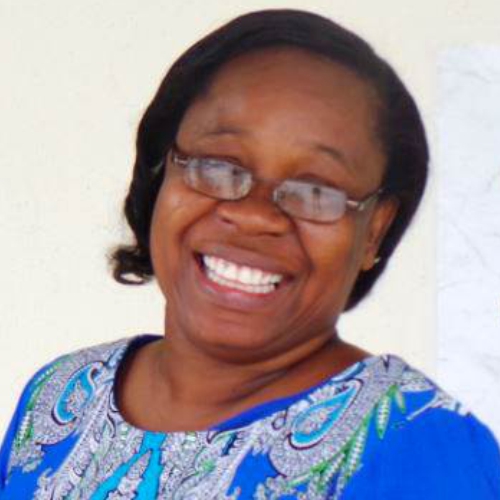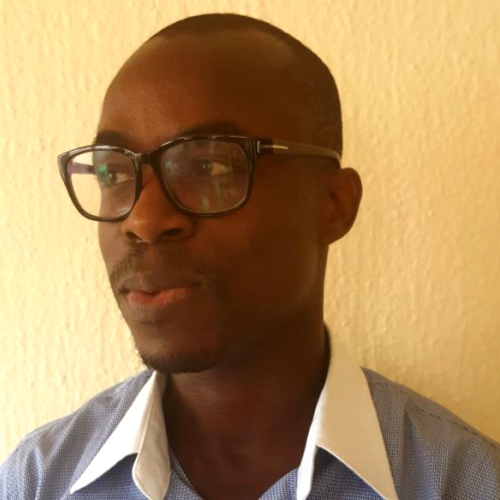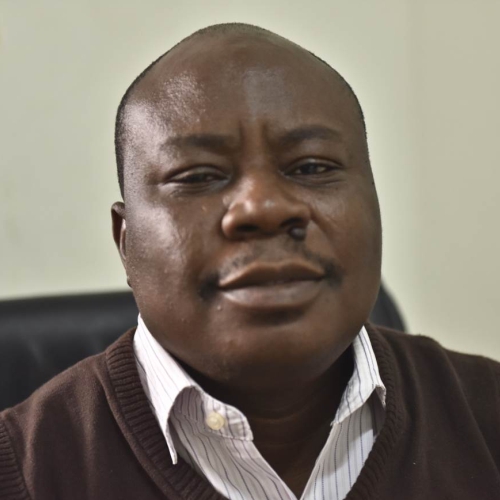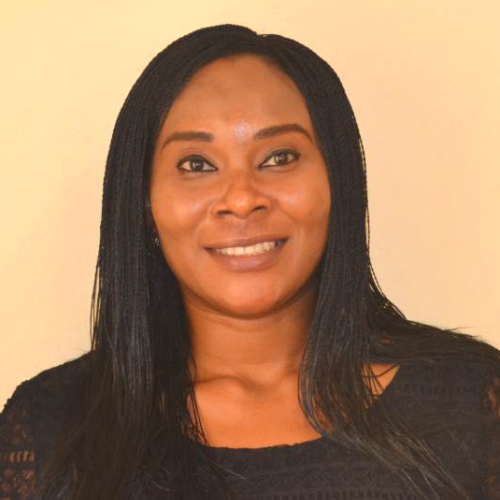Nigerian government’s policy to restrict access to hard currency for commodities which could be produced in Nigeria is creating major opportunities for local production.
About PIND
2016: Our Results
4,200 persons and 659 organizations are identifying as peace agents through our Partners for Peace (P4P) Network
2,377 jobs created from our economic development interventions
We reached 182 new SMEs with business advisory services, 44 of whom are currently implementing upgrade plans
3,250 fish farmers, 2,511 cassava farmers and 908 palm oil farmers adopted improved agronomic practices
32,863 of our beneficiaries saw increased incomes
N292,000,000 in direct investments from advocacy events and stakeholder engagements
Farmers and small medium enterprises (SMEs) we supported had a change in income of N1,166,738,676
Over 30 beneficiary organizations from our Capacity Building for Local Empowerment (CAPABLE) now delivering quality services to communities
Economic Development
Through this program, we promote opportunities for market development that reduce poverty and find ways to improve the profit-making in identified sectors relevant to a significant number of poor or disadvantaged people to improve their significant growth potential.
Critical Socio-Political Factors Affecting PIND’s Economic Development Interventions in 2016
Our work in economic development does not exist in a vacuum; it is shaped by the broader socioeconomic and policy environment, and key partnerships that we have forged. Below are some of the factors that influenced our economic development in 2016


We worked with MADE on improving access to finance and the provision of technology adoption grants (TAG) across project beneficiaries, as well as on the development of the common initiative on co-facilitator development. We also leveraged Nigeria Agricultural Enterprise curriculum (NAEC) trainings and good agricultural practice demonstration models. Our partnership with them has helped increase outreach and engagement of the market actors.

We saw in 2016 a stronger interest by local non-governmental organizations (NGOs) to apply the Making Markets Work for the Poor (M4P) approach to help organizations design pro-poor economic development interventions for sustainability by taking on a facilitatory role and not directly influencing the market.
Cassava
Business Linkages
Palm Oil
Aquaculture
Peace Building
Under this program, we strengthen conflict resolution mechanisms for enabling integrated peace and economic growth
Analysis and Advocacy
Through this program area, we seek to improve analysis and understanding of systemic constraints to growth in the Niger Delta region.
NDLink is our advocacy information and communication platform for the Niger Delta region.
NDDF 2016 - Owerri
Insightful quotes speakers at the event that got us thinking
WATCH THE VIDEOS
Capacity Building
Under this program area, we build the service delivery and engagement capacity of government, civil society and communities.
Through the Capacity for Local Empowerment (CAPABLE) project, we help open up a strong, sustainable market for capacity building services for local organizations in the Niger Delta
Through our strengthening Advocacy for Civic Empowerment (SACE) project, we support increased engagement and efficacy of civil society to influence public institutions whose function it is to serve citizens interests
Through our Leadership, Empowerment and Development (LEAD) program we boost local government service delivery and improving services in participating local government councils in Rivers State
Our Stories of Change
Hover and click on photos below for stories...
Board Of Trustees

Jones Itomba Okoro
Development & Community/ Public Health Expert
Leadership Team

Ese Emerhi

Sola Afolayan
Team Members
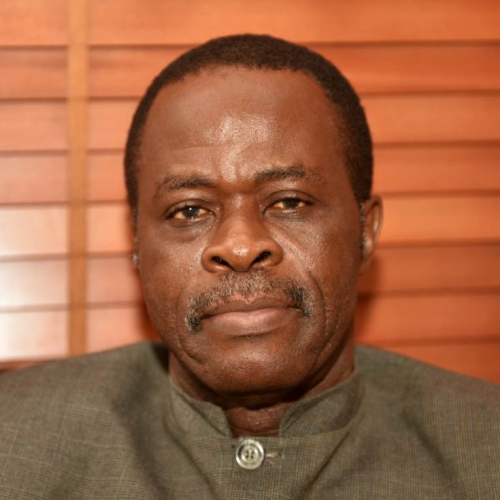
Myke Ekpe
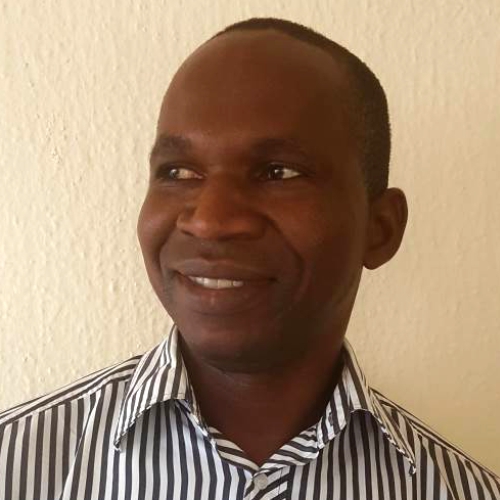
David Udofia

Blessing Tuoyo

Segun Elujoba

Doris Aloh-Tah

Juliana Tete

Hope Akpan

Helen Akpata
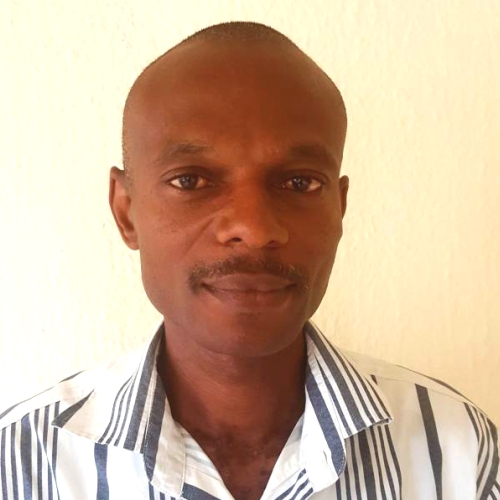
Belema Okari

Meshack Gbogbor

Yemi Mabiaku

Sunday Amadu

Kehinde Igboro

Frank Ukpong

James Onalo
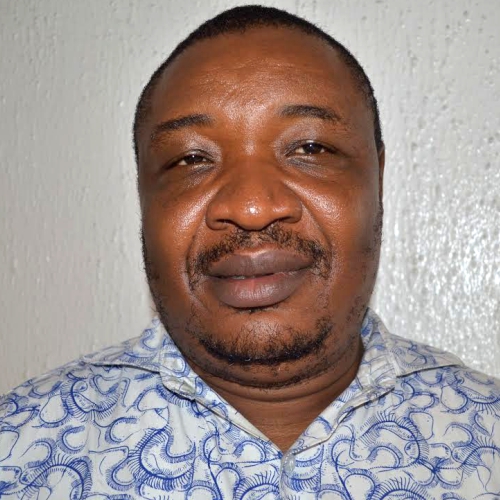
Ikechukwu Ehirm

Victor Ogheneovo
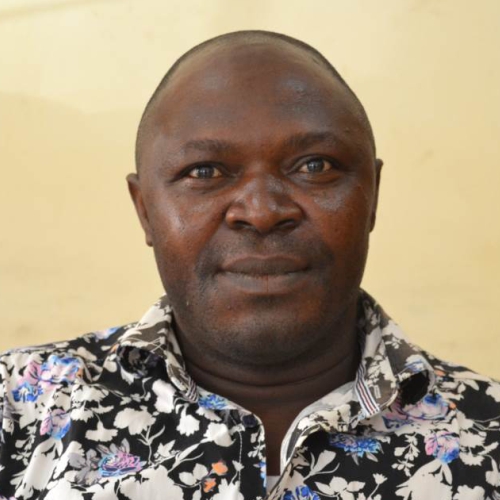
Issac Dussu

David Adamgbe
FINANCIAL REPORT
Going Concern
The Foundation's financial statements have been prepared using the going concern basis of accounting. The use of this basis of accounting is appropriate unless management either intends to liquidate the Foundation or to cease operations, or has no realistic alternative but to do so.
Basis of Opinion
We conducted our audit in accordance with the Nigerian Standards on Auditing (NSAs) issued by the Institute of Chartered Accountants of Nigeria (ICAN). Our responsibilities under those standards are further described in the Auditor's Responsibilities for the Audit of the Financial Statements section of our report.
Financial Statements
We have audited the financial statements of the Foundation, which comprise the statement of financial position as at December 31, 2016, the statement of operating activities, statement of changes in equity, statement of cash flows for the year then ended, and notes to the financial statements, including a summary of significant accounting policies.
Opinion
In our opinion, the accompanying financial statements give a true and fair view of the financial position of Foundation for Partnership Initiatives in the Niger Delta as at December 31, 2016, its financial performance and its cash flows for the year then ended in accordance with the provisions of the Companies and Allied Matters Act CAP C20 LFN 2004 and the Financial Reporting Council of Nigeria (FRCN) Act No.6 of 2011.
Responsibilities of the Directors for the Financial Statements
The Directors are responsible for the preparation and fair presentation of these financial statements which are in compliance with the requirements of both Financial Reporting Council of Nigeria Act, No. 6 of 2011 and the Companies and Allied Matters Act, Cap C20 LFN, 2004.
STATEMENT OF OPERATING ACTIVITIES FOR THE YEAR ENDED 31 DECEMBER, 2016

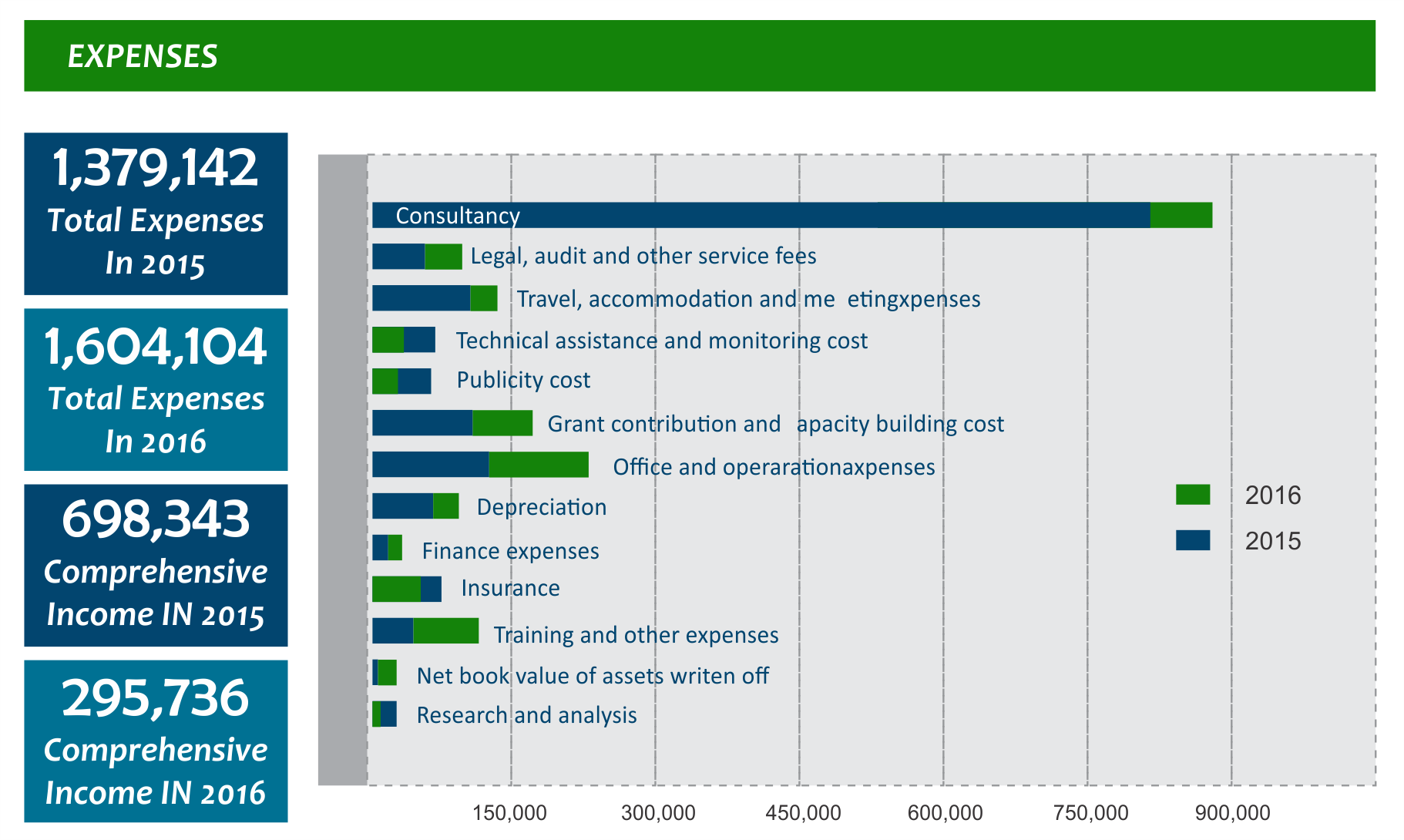
CONTACT US
WANT A HARD COPY OF THIS REPORT? HAVE FEEDBACK ON THE REPORT OR ON OUR WORK? GET IN TOUCH!
LEARN MORE
www.pindfoundation.org
@PINDfoundation @PINDfoundation www.facebook.com/PINDfoundation @PINDfoundation
CONTRIBUTORS
Writer: Saratu Abiola
Editor: Chichi Nnoham-Onyejekwe
Photos: PIND Media for Development
Web Design: MEL-Technologies & Solution Ltd.

